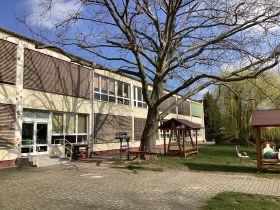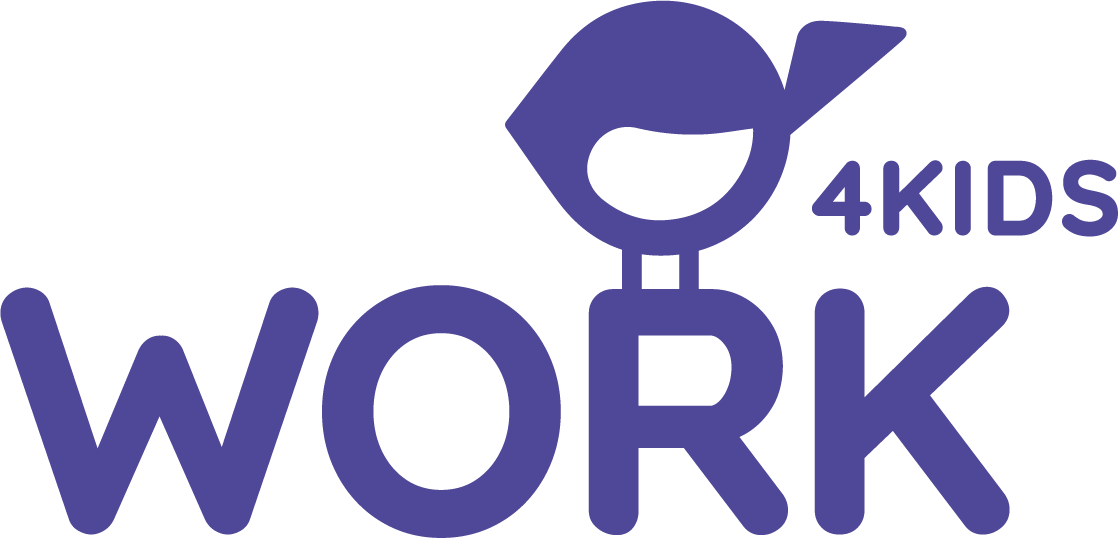Vorstellung/Besonderheiten
Wir arbeiten nach Kneipp
„Das Beste, was man gegen eine Krankheit tun kann, ist etwas für die Gesundheit zu tun.“ (Sebastian Kneipp)
Wir arbeiten nach der ganzheitlichen Gesundheitslehre des „Wasserdoktors“ Sebastian Kneipp. Wir beschäftigen uns in erster Linie damit, wie wir unsere Kinder und uns selbst gesund erhalten können. Die Kinder erlernen spielerisch Grundlagen zur gesunden und naturgemäßen Lebensweise.
Die 5 Säulen von Kneipp
-
Lebensordnung und seelisches Wohlbefinden (Freunde finden, sich wohl fühlen, geregelter Tagesablauf, Rituale, Entspannung, Regeln, Massagen,...)
-
Bewegung (bei Wind und Wetter an der frische Luft bewegen, Sportangebote, Wanderungen, Spielplatzbesuche, Ballrutsche,...)
-
Gesunde Ernährung (ausgewogene gesunde Lebensmittel, gemeinsame Mahlzeiten in gemütlicher Atmosphäre, verschiedene Lebensmittel kennenlernen, alles ausprobieren und selbst entscheiden was gut schmeckt, ernten und verarbeiten was im Garten wächst,...)
-
Kräuter und Heilpflanzen (Kräuter kennenlernen und verarbeiten, kleine Hausapotheke, mit Kräutern würzen, Kräuter riechen und schmecken,...)
-
Wasser (Armbad, Wassertreten, Taulaufen, Schneetreten, Luftdusche, Sauna, Knieguss, Teddyguss – Gesicht,…)
Wir arbeiten nach sächsischem Bildungsplan
Lernen ist Spiel und Spiel ist lernen. Das Spiel ist die Hauptbeschäftigung des Kindes und es ist erstaunlich, wie sich alle Bildungsbereiche im Spiel und in den kindlichen Aktionen wiederfinden lassen. Alles, was die Kinder im Kindergarten lernen, benötigen Sie für ihr späteres Leben, als Schulkinder, Jugendliche, Erwachsene. Wir legen in der Kita den Grundstein.
-
Somatische Bildung, z.B. die Umwelt mit allen Sinnen erkunden, den eigenen Körper kennenlernen, sich wohl und geborgen fühlen, den Körper gesund erhalten, Ruhe finden aber spannendes erleben, Bewegung und Sport, u.s.w.
-
Kommunikative Bildung, z.B. mit den Freunden sprechen, mit der pädagogischen Fachkraft kommunizieren und Spielregeln vereinbaren, Geschichten hören und nacherzählen, Blicke und Gesten deuten, an Sprache Freude finden, singen, u.s.w.
-
Soziale Bildung, z.B. mit Freunden spielen, etwas abgeben oder tauschen, sich absprechen, Spielinhalte aushandeln, Emotionen bei mir selbst und bei anderen erkennen, auf Emotionen entsprechend reagieren, kleine Aufgaben übernehmen, jeden so akzeptieren wie er ist, u.s.w.
-
Ästhetische Bildung, z.B. Farben und Formen betrachten, Musterketten legen, Farben beschreiben, Musik hören und selber Musik machen, Theater spielen, Fingerspiele, tanzen, Malen, Basteln, u.s.w.
-
Naturwissenschaftliche Bildung, z.B. alles erkunden, Materialien benennen und erkunden woher diese kommen; Menschen, Pflanzen und Tiere kennenlernen, Fragen stellen und Antworten finden, experimentieren, u.s.w.
Wir sind integrative Einrichtung
Bei uns können Kinder mit individuellem Förderbedarf spielen, lernen und sich wohl fühlen. Wir begleiten die Kinder und Eltern fachlich, um dem Kind die bestmögliche Unterstützung zu geben, die benötigten Fertigkeiten und Fähigkeiten zu erlernen und Spaß am trainieren zu haben. Alle Kinder sollen in Ruhe aufwachsen und sich entwickeln können.




